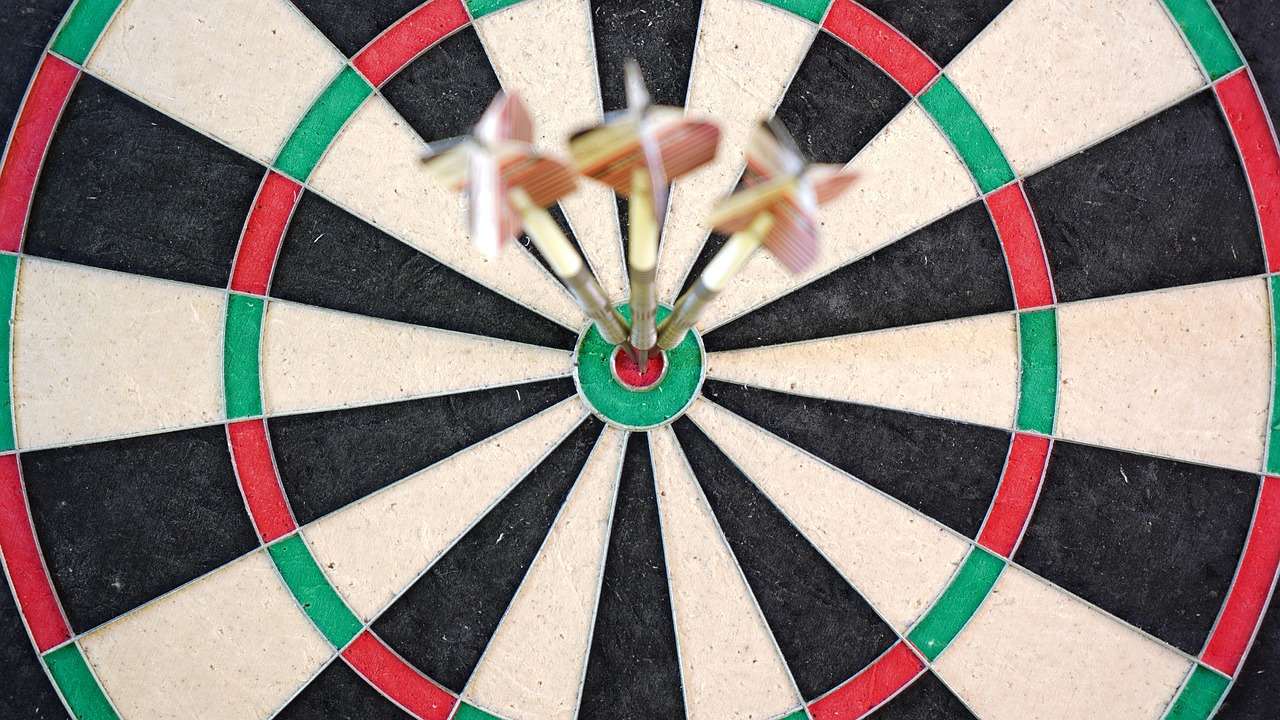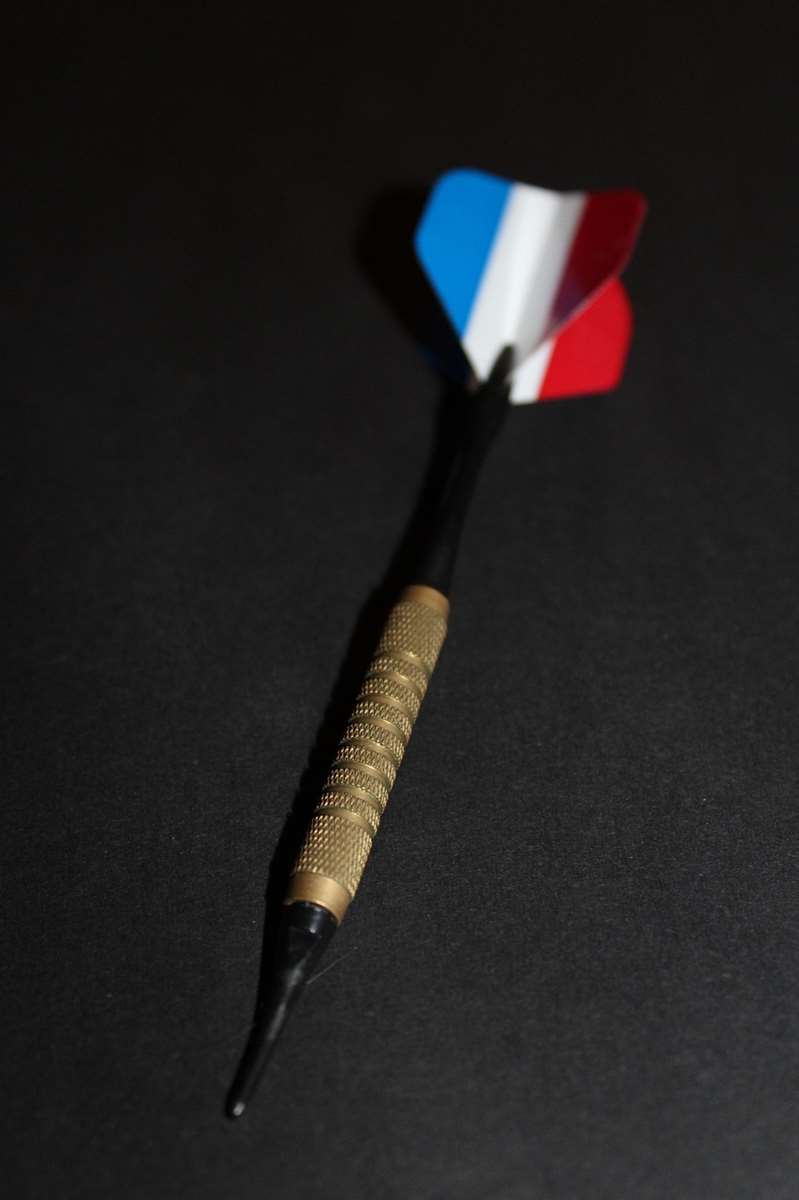The history of fouls and penalties in the sport of darts is relatively straightforward compared to other sports, focused primarily on maintaining fair play and ensuring accurate scoring; this article explores the evolution of these rules and their impact. We’ll delve into the common infractions, their associated penalties, and how these have been codified and enforced throughout the sport’s development.
⚠️ Still Using Pen & Paper (or a Chalkboard)?! ⚠️
Step into the future! The Dart Counter App handles all the scoring, suggests checkouts, and tracks your stats automatically. It's easier than you think!
Try the Smart Dart Counter App FREE!Ready for an upgrade? Click above!
Understanding the History of Fouls and Penalties in the Sport of Darts
Unlike many sports with complex officiating and subjective interpretations of rules, darts has traditionally maintained a focus on simplicity and self-regulation. However, to ensure fair competition, specific guidelines and associated penalties have evolved over time. These guidelines aim to address issues such as incorrect scoring, stepping over the oche (throwing line), and unsportsmanlike conduct. Understanding these rules is vital for both casual players and serious competitors. Let’s explore how the **history of fouls and penalties in the sport of darts** has shaped the game.

Key Fouls and Their Penalties in Darts
While the specifics can vary slightly between leagues and organizations, certain fouls and penalties are almost universally recognized in darts. These are in place to preserve the integrity of the game and prevent unfair advantages. Here are some of the most common:
- Foot Faults (Oche Infractions): This is perhaps the most frequently observed foul. Players must stand behind the oche (throwing line) when releasing their darts. Stepping over the line, even unintentionally, can result in the throw being declared invalid. There’s usually a degree of leniency, especially in amateur games, but in professional settings, strict adherence is expected.
- Incorrect Scoring: Darts relies heavily on accurate scoring. Miscounting scores, whether accidental or deliberate, can lead to penalties. If a mistake is discovered, the score is typically corrected, and the player may face a warning or, in more severe cases, disqualification.
- Darts Falling Out: If a dart falls out of the board before being retrieved (and before scoring is confirmed), it generally doesn’t count. The rules are very clear that the dart must remain in the board until a player retrieves them to count toward the score.
- Unsportsmanlike Conduct: Disruptive behavior, such as distracting an opponent, using abusive language, or tampering with the board, is considered a foul and can result in penalties ranging from warnings to disqualification. Fair play is highly valued in darts.
- Darts Bouncing Out: A dart must remain in the board to score. If a dart strikes the board and bounces out before scoring can be counted, it is not scored.
It’s important to note that the enforcement of these penalties can differ based on the level of play and the specific rules of the tournament or league. Often, the highest level of the sport uses video evidence to review scoring accuracy. This can be beneficial for resolving disputes.
Evolution of Dart Rules and Penalties
The history of fouls and penalties in the sport of darts hasn’t been static. It’s evolved along with the sport itself. Early versions of darts were less formal, with rules often varying from pub to pub. As the game gained popularity and became more organized, there was a need for standardization. Organizations like the British Darts Organisation (BDO) and later the Professional Darts Corporation (PDC) played a crucial role in codifying the rules and establishing consistent penalty guidelines.
The move to televised darts played a significant role in solidifying rules and ensuring greater transparency. The cameras leave no room for doubt, highlighting any breach of the rules and ensuring fair play for all competitors, and this, combined with the **importance of rule adaptations**, have helped to shape modern darts.

The Oche: A Focal Point for Fouls
The oche, or throwing line, is a constant source of potential fouls. The distance from the oche to the dartboard is standardized (7 feet 9 1/4 inches or 2.37 meters), and players must adhere to this line during their throws. This ensures a level playing field and prevents players from gaining an unfair advantage by standing closer to the board. To avoid oche infractions, consider these tips:
- Establish a Consistent Stance: Find a comfortable stance that keeps your foot consistently behind the oche.
- Maintain Balance: Ensure your balance remains stable throughout your throw. Shifting your weight excessively can lead to accidental foot faults.
- Practice Regularly: Consistent practice helps reinforce proper technique and reduces the likelihood of stepping over the line.
In professional darts, umpires and referees are often present to monitor oche violations closely. They have the authority to call a foul if a player’s foot crosses the line. However, in casual games, it’s usually up to the players themselves to enforce the rule. To that end, you may wish to consider adapting darts rules for beginners as you introduce them to the sport.
Scoring Errors and Their Consequences
Accurate scoring is paramount in darts. While unintentional errors can occur, especially in fast-paced games, deliberate attempts to manipulate the score are strictly prohibited. Various methods exist to reduce and eliminate scoring errors. These include:
- Designated Scorer: Assigning a dedicated scorer can help minimize errors. This person should be attentive and familiar with the scoring system.
- Double-Checking: Encourage players to double-check the score after each turn. This simple step can catch many mistakes before they become significant.
- Using Technology: Many electronic dartboards and scoring apps are available to automate the scoring process and reduce the risk of human error.
The penalties for scoring errors can vary depending on the severity and intent. Minor errors are usually corrected without further action. However, if a player is caught deliberately cheating or manipulating the score, they may face disqualification or suspension. The spirit of the game emphasizes honesty and integrity.

Unsportsmanlike Conduct: Maintaining Decorum
Darts, while competitive, is generally played in a respectful and sportsmanlike manner. Unsportsmanlike conduct, such as distracting opponents, using abusive language, or damaging equipment, is frowned upon and can result in penalties. While these rules are sometimes tricky to manage, how to make darts fairer with handicap rules can ensure that players of mixed skill levels feel welcome and safe to participate.
Examples of unsportsmanlike conduct in darts include:
- Verbal Abuse: Using offensive language towards opponents, referees, or spectators.
- Distracting Behavior: Making excessive noise or movements during an opponent’s throw.
- Tampering with Equipment: Damaging or altering the dartboard or darts.
The penalties for unsportsmanlike conduct can range from warnings to disqualification, depending on the severity of the offense. In professional darts, players are expected to conduct themselves with professionalism and respect, both on and off the stage. This ensures a positive image for the sport. The sport’s ethics are important and should be maintained.
Enforcement of Rules and Penalties
The enforcement of rules and penalties in darts varies depending on the level of play. In casual games, players typically self-regulate, resolving disputes amicably. In more organized settings, such as leagues and tournaments, referees or umpires are often present to enforce the rules and adjudicate disputes. The professionalism of the referees often sets the tone for an entire competition. The **history of fouls and penalties in the sport of darts** emphasizes the critical role of the referees.
Professional darts organizations, such as the PDC, have strict codes of conduct and disciplinary procedures for dealing with rule violations. These procedures may involve fines, suspensions, or even expulsion from the organization. The aim is to maintain the integrity of the sport and ensure fair competition for all players.

Modern Challenges and Future Trends
As darts continues to evolve and gain popularity, new challenges and trends are emerging in the area of rules and penalties. The increasing use of technology, such as electronic scoreboards and video replay, is raising questions about the accuracy and fairness of officiating. There’s also a growing focus on player welfare and mental health, leading to discussions about how to address issues such as stress and anxiety in competitive darts.
Some potential future trends in darts rule enforcement include:
- Enhanced Video Replay: Using more sophisticated video replay technology to resolve scoring disputes and oche violations.
- Mental Health Support: Providing access to mental health professionals for players struggling with the pressures of competition.
- Stricter Codes of Conduct: Implementing stricter codes of conduct to address issues such as online abuse and gambling-related misconduct.
The **future of darts** may also include more alternative scoring formats and adaptive rules, but the underlying principles of fair play and accurate scoring will remain essential.
Tips for Playing Fair and Avoiding Penalties
Whether you’re a casual player or a serious competitor, playing fair and avoiding penalties is essential for enjoying darts and maintaining the integrity of the game. Here are some practical tips:
- Know the Rules: Familiarize yourself with the rules of the game, including the specific rules of the league or tournament you’re participating in.
- Be Respectful: Treat your opponents, referees, and spectators with respect, even in the heat of competition.
- Be Honest: Avoid cheating or manipulating the score. If you make a mistake, admit it and correct it.
- Control Your Emotions: Manage your emotions and avoid outbursts of anger or frustration.
- Practice Good Sportsmanship: Win with humility and lose with grace. Congratulate your opponents on their success and learn from your mistakes.

The Importance of Rule Adaptations in Darts
In some scenarios, it’s useful to adjust certain rules. Consider adapting darts rules for small spaces: tips and tricks when playing in a confined area. To do this, players should agree on specific modifications, such as shortening the throwing distance or using a smaller dartboard. Clear communication and consensus are essential. In these situations, fairness remains the top priority, and the modifications shouldn’t give any player an unfair advantage. Such rules can also be useful for families that want to play darts with younger members; in these scenarios, consider adapting dart game rules for children.
Players may also modify the game to make it more fun, and fun dart game variations with modified rules will help spice up your social gatherings. Regardless of these factors, these rule adaptations should be balanced with the **sport’s traditions**.
Conclusion
The history of fouls and penalties in the sport of darts demonstrates a commitment to fair play and accurate scoring. From the standardization of the oche to the enforcement of rules against unsportsmanlike conduct, these guidelines have helped shape darts into a respected and competitive sport. By understanding these rules and adhering to the principles of sportsmanship, players can contribute to the continued growth and integrity of the game. Now that you understand the rules, why not find a local darts league or organize a game with friends? Put your knowledge to the test and enjoy the thrill of the game!
Hi, I’m Dieter, and I created Dartcounter (Dartcounterapp.com). My motivation wasn’t being a darts expert – quite the opposite! When I first started playing, I loved the game but found keeping accurate scores and tracking stats difficult and distracting.
I figured I couldn’t be the only one struggling with this. So, I decided to build a solution: an easy-to-use application that everyone, no matter their experience level, could use to manage scoring effortlessly.
My goal for Dartcounter was simple: let the app handle the numbers – the scoring, the averages, the stats, even checkout suggestions – so players could focus purely on their throw and enjoying the game. It began as a way to solve my own beginner’s problem, and I’m thrilled it has grown into a helpful tool for the wider darts community.